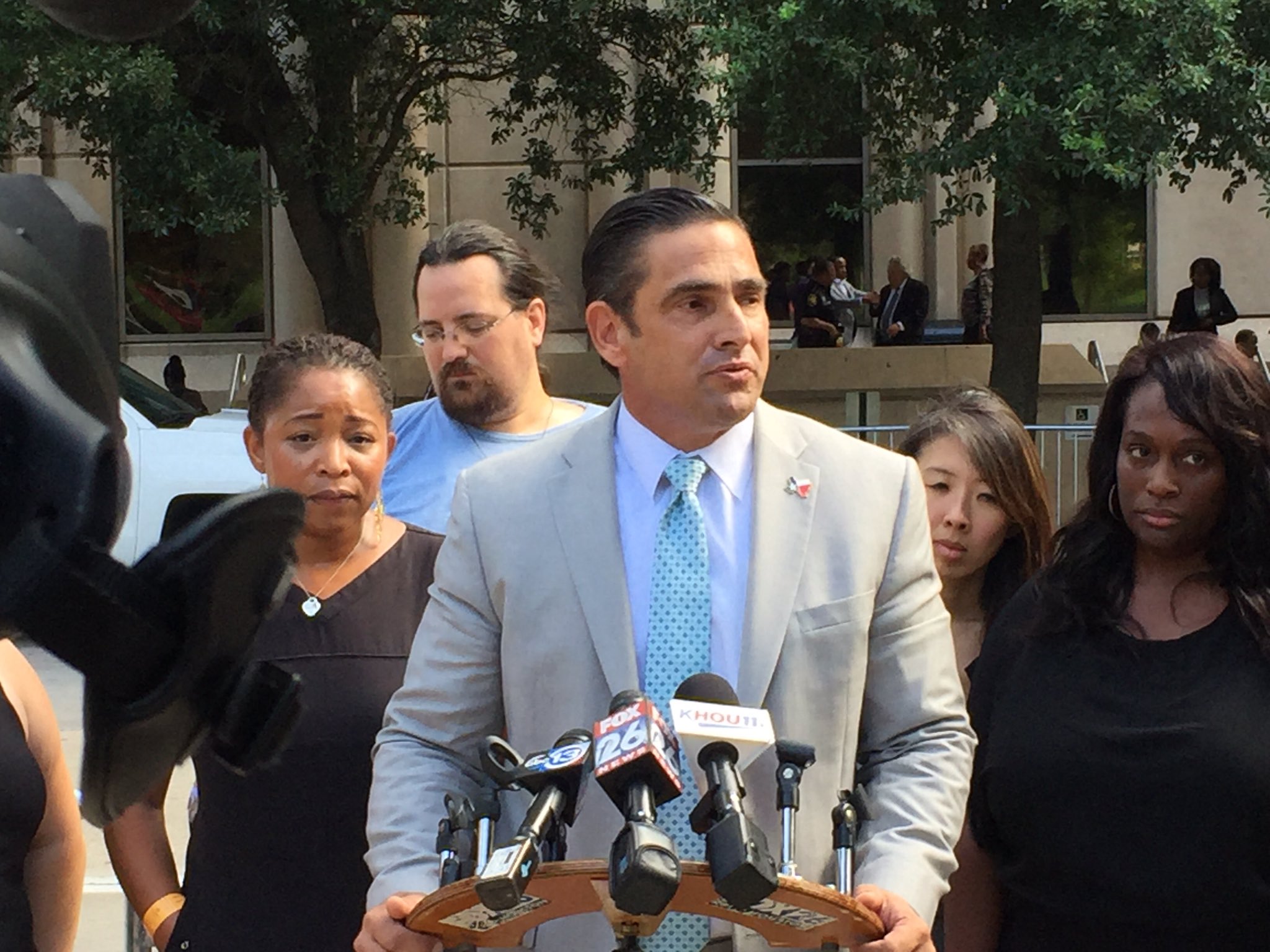Charged with a crime? Your Houston Criminal Lawyers got you.
Free consultation. Available 24 hours a day.

Cases
Dismissals
Years in Practice
Murder Trials Lost
Houston Criminal Lawyer
Practice Areas
MURDER & ASSAULT
If you’re facing a murder, aggravated assault, assault with a deadly weapon or other charge – rest assured we have the experience to defend you or a loved one when it counts the most.
FAMILY VIOLENCE
ROBBERY & THEFT
NARCOTICS & DRUG POSSESSION
PERSONAL INJURY
FEDERAL CASES
A PROVEN FIGHTER
Fight For Justice
Best Case Stratergy
Experienced Attorneys

We’ll Fight For You!
Reliable • Honest • Committed
ABOUT SAM CAMMACK III
Your Houston Criminal Lawyer

► Integrity is at the core of what we do
► We show up, stay committed, and turn over every stone
► Commitment to excellence in all of our casework
► We always assume the very best of our clients
► Calm and level headed always during stormy waters
► Complete access that makes you feel like family
Experienced Trial Lawyer & TV Legal Analyst
As seen on

Additional Media Coverage

Client Testimonials
What they say about Your Houston Criminal Lawyer
Free Consultation
100% always free, truly no pressure & no strings attached consultation
Frequently Asked Questions
What is the difference between murder and assault?
What are the different degrees of murder?
What constitutes self-defense in cases of assault or murder?
Stand your ground law or castle doctrine is the self-defense law in Texas. This law makes Texas special in the United States. Under the “stand your ground” law, individuals don’t need to demonstrate that a reasonable person couldn’t have avoided the violent situation by seeking safety elsewhere and thus had no alternative but to resort to violence for self-protection. Instead, individuals are only required to establish they had a lawful right to be present during the defensive action.
What is the punishment for murder and assault convictions?
Assault in Texas can result in a misdemeanor or felony conviction. The penalty will depend on the level of harm inflicted, the victim, and the defendant’s criminal history.
Here are the penalties for assault in Texas:
- Class C Misdemeanor – up to a $500 fine, no jail time
- Assault causing bodily injury, a Class A misdemeanor – up to a year in jail and $4,000 in fines
- Second-degree felony – 2 to 20 years in prison and a fine of up to $10,000
- First-degree felony – 5 years to life in prison, plus fine
In certain cases, prosecutors in Texas raise a simple assault resulting in minor injury to a third-degree felony. This offense carries a potential sentence of 2 to 10 years in a Texas prison and/or a fine of up to $10,000.
What is the statute of limitations for murder and assault?
Can someone be charged with both murder and assault for the same incident?
If an individual causes the death of another person while committing an assault, they could potentially face charges for both offenses. For example, if someone assaults another person with a deadly weapon and that assault results in the death of the victim, the perpetrator could be charged with both assault and murder.
However, it’s important to note that the specific charges brought against an individual will depend on the facts and circumstances of the case, as well as the evidence gathered by law enforcement during their investigation. Each case is unique, and the decision to pursue multiple charges in a single incident rests with the prosecuting authorities based on the evidence and applicable laws.
What factors determine whether a killing is considered murder or manslaughter?
Can someone be charged with murder if they did not directly cause the death?
Are there any defenses against murder or assault charges?
What should I do if I am accused of murder or assault?
What constitutes family violence?
What are the legal consequences of a family violence charge?
What should I do if I'm accused of family violence?
- Refrain from discussing the allegations with the accuser or anyone else except your attorney.
- Contact a qualified criminal defense attorney who specializes in handling family violence cases to protect your rights and provide guidance through the legal process.
- Follow any court orders or conditions of release while your case is pending, and avoid contact with the alleged victim to prevent potential violations of protective orders. Your attorney will help you navigate the legal proceedings, build a defense strategy, and advocate on your behalf to achieve the best possible outcome.
Can I defend myself against allegations of family violence?
- Refrain from discussing the allegations with the accuser or anyone else except your attorney.
- Contact a qualified criminal defense attorney who specializes in handling family violence cases to protect your rights and provide guidance through the legal process.
- Follow any court orders or conditions of release while your case is pending, and avoid contact with the alleged victim to prevent potential violations of protective orders. Your attorney will help you navigate the legal proceedings, build a defense strategy, and advocate on your behalf to achieve the best possible outcome.
What if I'm falsely accused?
- Refrain from discussing the allegations with the accuser or anyone else except your attorney.
- Contact a qualified criminal defense attorney who specializes in handling family violence cases to protect your rights and provide guidance through the legal process.
- Follow any court orders or conditions of release while your case is pending, and avoid contact with the alleged victim to prevent potential violations of protective orders. Your attorney will help you navigate the legal proceedings, build a defense strategy, and advocate on your behalf to achieve the best possible outcome.
How can I protect my rights during the legal process?
- Cooperate closely with your attorney and follow their advice.
- Exercise your right to remain silent and refrain from discussing the case with anyone other than your legal counsel.
- Ensure that you understand your rights as outlined by the law and assert them as needed throughout the proceedings.
- Maintain meticulous documentation of all interactions and communications related to your case for future reference.
Can an individual charged with domestic violence be granted bail?
What support resources are available to defendants in family violence cases?
How will a family violence conviction affect my future?
What is the difference between robbery and theft in Texas?
What are the penalties for robbery in Texas?
How is theft classified in Texas?
Can a theft charge be expunged in Texas?
What is the statute of limitations for robbery and theft in Texas?
What is the punishment for robbery and theft convictions?
For aggravated robbery, a first degree felony, the punishment can range from 5 – 99 years of prison or life imprisonment and/or a fine not exceeding $10,000.
Punishment for theft ranges from imprisonment of at least 180 days to imprisonment for life or for any term of not more than 99 years or less than 5 years and/or a minimum fine of $500 to a maximum fine of $10,000.
Can I be charged with theft if I accidentally took something?
What should I do if I've been charged with robbery or theft in Texas?
What are narcotics?
What are the laws regarding drug possession in Texas?
What are the penalties for drug possession in Texas?
Is drug possession treated differently for certain drugs in Texas?
Can drug possession charges in Texas be expunged or sealed?
What are the potential defenses against drug possession charges in Texas?
Are there alternatives to incarceration for drug possession offenders in Texas?
What should I do if I am charged with drug possession in Texas?
Is Marijuana illegal in Texas?
Here’s a concise overview of marijuana possession laws in Texas:
Medical Usage: Legal only for medical purposes under the Compassionate Use Program since 2015. Recently, House Bill 1535 raised the allowable THC limit for medical patients to 1 percent. Patients need approval from a registered doctor.
Recreational Use: Still illegal in Texas. Possession of less than four ounces is a misdemeanor; four ounces or more is a felony. Selling less than seven grams is a misdemeanor; seven grams or more is a felony. Possessing hash and paraphernalia like bongs can lead to charges.
